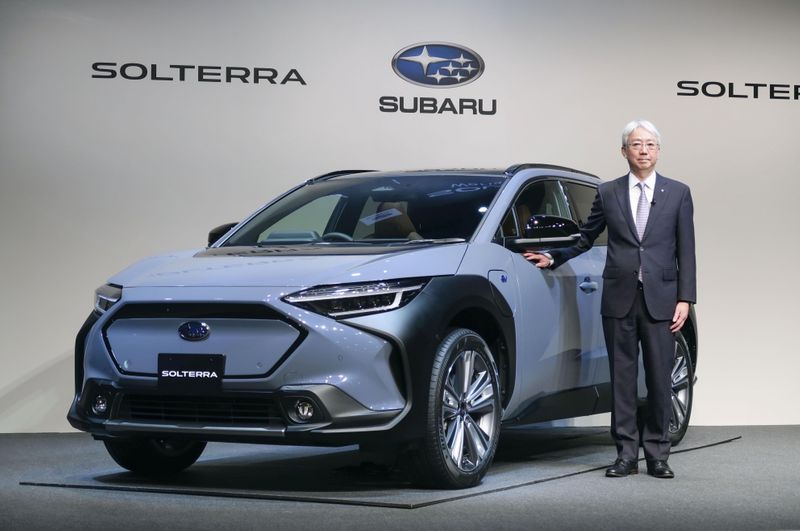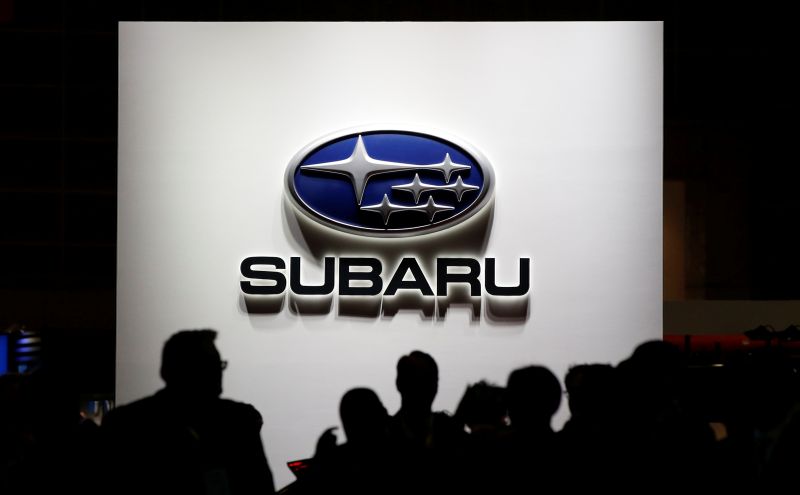TOKYO (Reuters) - Japan's Subaru (OTC:FUJHY) Corp on Thursday unveiled its first all-electric vehicle (EV), the Solterra, the result of a two-year joint development project with its biggest shareholder, Toyota Motor (NYSE:TM) Corp.
The sports utility vehicle (SUV) launch comes amid accelerating demand for EVs as nations around the world tighten environmental regulation to cut carbon emissions. Toyota last month announced its version of a battery electric vehicle (BEV), the bZ4X.
The technological shift away from internal combustion engines poses a challenge for smaller carmakers, such as Subaru, that are less able to fund expensive development of EVs. At the same time, it is an opportunity for top-tier automakers, such as Toyota, to draw smaller rivals closer.
"The EV market is not mature yet, so we will respond to it by deepening our cooperation with Toyota," Subaru CEO Tomomi Nakamura said during a launch event.
For now, he said, the Solterra would be built by Toyota in Japan and Subaru may move production to its main market, the United States, when it had sufficient sales volume.
Toyota, a pioneer of hybrid electric cars but a latecomer to the full EV market, plans to have a line-up of 15 BEV models by 2025. It is also spending $13.5 billion over the next decade to expand auto battery production capacity.
Vehicle sales at Subaru are less than a tenth of those at Toyota, the world's biggest automaker by production volume.

The front-wheel drive Solterra has a cruising range of 530 km (329 miles), while the all-wheel drive version can drive 460 km on a single charge, Subaru said in a press release.
Toyota owns a fifth of Subaru and has a 5% stake in Mazda Motor (OTC:MZDAY) Corp, which plans to launch 13 electrified vehicles by 2025, including hybrids and BEVs that will incorporate Toyota technology.
